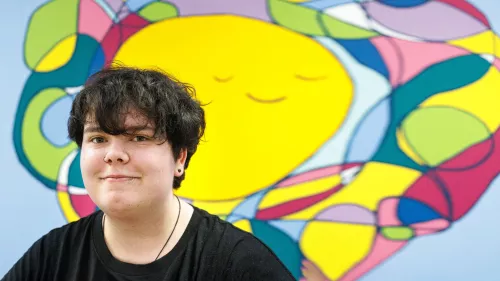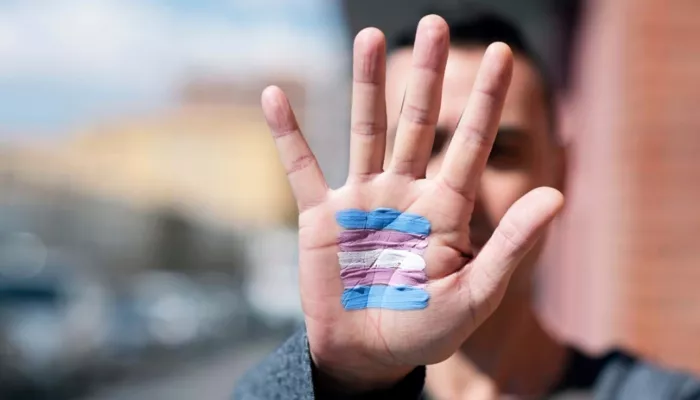Trans rights: A brief history
The fight for transgender rights has taken on huge significance in recent years. However, our understanding of transgender issues has a long and complex history, which has helped shape the present legal landscape.
In 2004, the Gender Recognition Act gave transgender persons legal recognition by allowing them to acquire a birth certificate where they could choose to be assigned as ‘male’ or ‘female’. Positive changes to LGBT legislation can, however, often feel like one step forwards and two steps back: a 2022 pledge by the UK government to legally ban LGBT conversion therapy has been altered to discount transgender individuals.
Culturally, transgender people are still marginalised and persecuted, with Stonewall reporting in 2018 that two in five have experienced a hate crime. While society has come a long way, the stigma, mental health issues and discrimination trans people still face can result in homelessness.
Trans people are more likely to become homeless
There is no one cause of trans homelessness. However, being a minority group with limited support can often lead to mental health issues and family breakdown. Many LGBTQ+ people are forced out of their family home once their gender identity has been revealed, or are so frightened by their family members they have no choice but to leave.
These worries can continue beyond finding alternative shelter. Research shows trans people in particular have concerns about accommodation, with some actively avoiding accessing hostels for fear they would be assigned to a single-sex accommodation that doesn’t align to their gender identity. However, the alternative can be just as daunting: offences against trans rough sleepers have trebled since 2014; 46% of these were violent in more recent years.
What's the solution?
Research shows LGBT people are more likely to find themselves homeless than their non-LGBT peers, and make up around 24% of the youth homelessness population.
Here at Centrepoint, we are fully aware of the need to provide safe spaces for this community. Launched in a Soho basement in 1969, our journey has run parallel to the formation of Pride and we have provided a sanctuary for many throughout significant political and social moments in history, including the AIDS epidemic and rise of Section 28.

LGBT+ people make up around 24% of the youth homelessness population
We appreciate services can feel like a scary place, particularly if sharing bedrooms, bathrooms and other communal areas. Many trans people go ‘stealth’ in shared accommodation, reverting back to their birth gender to protect themselves.
We hope to provide a safe space for trans young people to get the help they desperately need. Our services give young people the physical space they need to continue being themselves and feel safe in doing so.
This is ingrained in our culture: in communal areas we encourage service staff to ensure LGBT material is on display and that specific resources and signposting are available. We also encourage gender-neutral toilets within all our buildings, with appropriate signage including explicit trans-inclusion information near the facilities.
From our inception, we have strived to be welcoming to anyone who needs it and we continue to provide tailored mental and physical health support to all of our young people.
Frankie's story
Frankie (pictured above), 21, is a neuro-divergent trans man and has been in and out of homelessness since 2019. His precarious housing situation meant he’s found himself in some inappropriate living situations with people who have taken advantage of his vulnerability. Things got so bad for Frankie in his accommodation that he attempted to end his life in 2021.
With Centrepoint’s support, Frankie is now in a stable room in semi-supported accommodation, where he’s rebuilding his independence. He has his own space, gets on well with his housemates and can also access Centrepoint’s dedicated psychotherapy services for extra mental health support.
It’s been a difficult journey and some things still remain uncertain due to the cost-of-living crisis, but things are getting better. “It has been a pleasure to be able to support Frankie and it is lovely to hear he is settling in well to his accommodation,” his key worker told us.
How you can help
Centrepoint makes a significant, tangible difference to the lives of young people like Frankie, every day. By supporting us, you can help ensure they have a place to call home. A place to thrive. A place to feel safe.
Whether it be through a monthly or one-off donation or holding your own fundraising event, there are plenty of opportunities to potentially be the turning point in a trans homeless young person’s life.
Together, we can ensure that homelessness is less of a likelihood for transgender young people during the cost-of-living crisis and beyond, and aim to eradicate all youth homelessness including LGBT by 2037.
Thank you for your support, and happy Trans Awareness Week!

